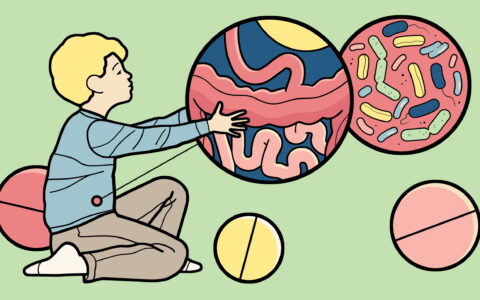When youth with autism leave the school system, their families face the complex task of locating which services and supports they need – and how to access them.
Now, a randomized controlled trial has shown that advocacy training can boost families’ ability to understand and pursue needed services and supports, says lead author Julie Lounds Taylor, Ph.D., an associate professor of pediatrics and co-director of the Vanderbilt Kennedy Center for Excellence in Developmental Disabilities.
“The adult service system for people with disabilities is incredibly complicated.”
“The adult service system for people with disabilities is incredibly complicated,” Lounds Taylor said. “Families struggle to figure out what needs are most important for their son or daughter and how to get the right support to meet those needs. For people with disabilities, the service system completely changes from high school to adulthood.”
Services and other supports are typically provided at or through school while youngsters remain enrolled, but once they leave the system, families must track down similar or new services on their own, often facing a web of government agencies that administer various disability-related programs.
Families may receive little to no guidance about which services are available in the community to prepare them for this “monumental shift,” Lounds Taylor explained. This lack is what prompted the study.
“We want to figure out what’s happening for families and individuals when things go well for young autistic adults in the years after high school, and what’s different in those cases where things didn’t go well?”
Pilot Study Encouraging
The investigation was based on a pilot study by Lounds Taylor and colleagues at Vanderbilt to evaluate a training program called Advocating for Supports to Improve Service Transitions (ASSIST), which helps families become stronger advocates for their son or daughter.
Lounds Taylor and her colleagues developed the Tennessee-focused ASSIST curriculum into a model that can work in multiple states and tested it in three: Tennessee, Wisconsin and Illinois.
ASSIST provides standardized information that is relevant nationwide, while also permitting customization to ensure that the information is relevant to their own geographic area.
Working at three institutions between December 2019 and November 2020, members of Lounds Taylor’s research team recruited 185 parents or legal guardians of teens and young adults between 16 and 26 years of age diagnosed with autism. About 90 percent of parents in the study were women.
Ninety-one parents were assigned to receive intervention via the ASSIST group training program, while 94 parents served as controls. Ultimately, the researchers were able to attain post-training data on 176 parents, 95 percent of those enrolled.
Intense Training
The 12-week-long training program acquaints parents with the adult disability service system, how various services might benefit their own family member, and how to successfully access services and supports. It began with in-person sessions and eventually, due to COVID-19, switched to online.
For their study, the researchers mailed all participants written materials related to each week’s session, offered “tip sheets” featuring key points for each session, along with national and local resources.
For controls, the written information was all they received. Parents in the intervention arm received the written information along with an opportunity to participate in two-hour sessions where local experts explained the materials. The sessions offered parents the opportunity to engage in a group discussion with the experts and other parents.
“The control group had the opportunity to take the full class after a waiting period if they wanted to, so everyone eventually had the option to take the full class,” Lounds Taylor added.
Parents Learn to Persist
Parents and guardians learned that they be dogged in pursuing needed services, Lounds Taylor said.
“You have to be really persistent. In Tennessee, when people apply for supplemental security income, about two-thirds are denied the first time. You have to know not to quit, and how to appeal it, maybe hire an attorney. It’s often granted on appeal,” she said.
Such practical skills are included in the ASSIST program.
“We developed the curriculum in close partnership with community partners in the three different states,” Lounds Taylor said. “It took a lot of work to make it work across different states.”
Intervention Fostered Gains
Relative to the parents who only received written materials, parents who participated in the ASSIST program had greater gains in the knowledge of adult services, as well as in how prepared they felt to advocate on behalf of their son or daughter.
“The answer is to make a better system, one that’s easier on families and more accessible.”
Participants who at baseline had less knowledge, lower perceived advocacy skills, and less active coping styles made the greatest gains, suggesting that the program may be most beneficial for parents facing the largest challenges in advocating for their adult child with autism.
Though Lounds Taylor is encouraged that ASSIST is helpful to families, she also recognizes that there are larger issues with the service system that is not addressed by ASSIST.
“Families shouldn’t have to go through 24 hours of training just to get the basics,” she said. “This kind of program is ultimately not the answer. The answer is to make a better system, one that’s easier on families and more accessible to individuals with disabilities. Wouldn’t it be great if we didn’t need a program like this at all?”






